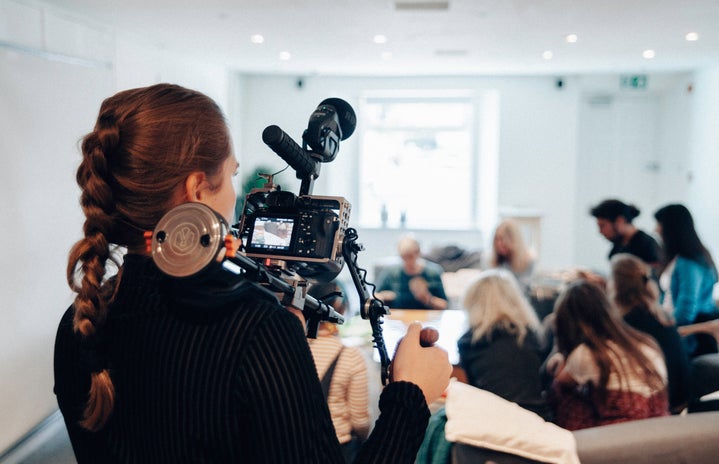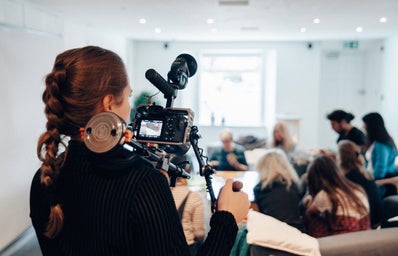I often used to say that one of my ambitions was to become a journalist – something I might still say, however crucially with much more reservation. Maybe I fell for the propaganda in the 1990s and 2000s Romcoms where it seemed that every quirky but gorgeous woman worked in journalism or publishing whilst living in Central London or New York City. However, is journalism a career that ordinary people can aim for or is it only possible for the nepo babies and influencers?
What provoked me to write about this topic was the news of Jamie Laing getting a show on BBC Radio. Laing started on Made in Chelsea and has recently had a popular podcast, Newlyweds, with his now wife, Sophie Habboo. Laing is set to take over the Going Home Show from Jordan North.
You couldn’t write it, Laing a privately educated, relative of the founder of the McVitie’s empire has taken the job of Jordan North, a working-class man who went to university and left with a first-class degree in Media Production. Now I am sure there are complicated things going on behind the scenes that we are not privy to but there does seem to be something worrying about this situation. However, I do think it lets us discuss who is being allowed to enter these spaces. Although Jordan North has seemingly been given an equally exciting opportunity, taking over the Capital Radio’s Breakfast Show, I am more concerned with the BBC relying on and actively seeking out ‘celebrity’ figures. And whilst I do not think Laing is a terrible fit for radio, it seems that the BBC did not even consider trying to branch out to someone who does not already have a celebrity status. Nowadays there is such an emphasis on having a social media following, that it appears impossible to infiltrate these institutions of arts and journalism if one is simply an ordinary person.
However, there are, in my opinion, some good examples of how social media has created innovative and inspired forms of journalism. Amelia Dimoldenberg started her Chicken Shop Dates as a column in a youth magazine, The Cut, and she developed this into the video format we know in 2014. Dimoldenberg seems to be a good example of someone who has cemented themselves as a key figure in journalism through social media. She has established a recognisable awkward persona and is now interviewing A-listers and is often on red carpets. Despite this, we must remember that she is a phenomenon, only one person. This sort of success is unprecedented, and the level of exposure is probably not one that everyone who wants to enter this industry desires.
But maybe this is the way the industry is from here on out. Fame and a celebrity status are now part of the process, meaning it will forever be harder to break into these industries when there are already influencers with large followings who decided radio and journalism gigs might be a bit of a laugh. Parts of this industry are also becoming extinct. Only a few weeks previous, Vice had to stop publishing on their website, with hundreds of staff laid off. If there are fewer places to work and the prerequisites for entering the industry continue to increase, then clearly there is a problem. I am of course a believer in the importance of our media and the potential for great journalism, but I cannot help but feel cynical whenever I see another influencer or celebrity type take up more space in this sector.


